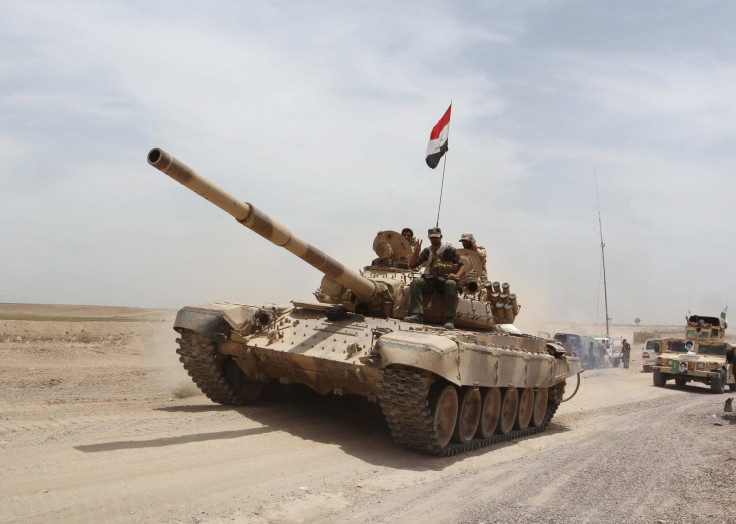Iraq Militia Leader Hadi al-Ameri Says A Direct Attack To Liberate Ramadi Is Ill-Advised

Hadi al-Ameri, Iraqi lawmaker and Shiite paramilitary commander, said there's no reason to try immediately to liberate Ramadi from the Islamic State, the Telegraph reported Sunday. However, he said the fall of the provincial capital of Anbar would not change his long-term strategy to defeat ISIS.
Ameri is leader of the Hashd al-Shaabi, a pro-Iranian Shiite militia fighting the militant group also known as ISIS. His comments contradict political leaders, including Iraqi Prime Minister Haider al-Abadi. Before Ramadi can be won back, Ameri said, ISIS must first be isolated from major cities and its supply routes cut off.
“Anyone who tells you we can retrieve Ramadi without this current operation is a liar,” Ameri told the Telegraph.
Trying to reassure Saudi Arabia, Abadi said in an interview with Iraqiya state TV Sunday that Iraq is not a “gateway for Iran” “We do not want to enter into regional conflicts, and if there are regional conflicts between Saudi Arabia and Iran,” Abadi said.
This past week Iraqi soldiers and allied Shiite militias gathered outside of Ramadi to retake the city 80 miles from Baghdad. Nearly 55,000 people have fled Ramadi since ISIS captured the city on May 17, CNN reported.
The loss of Ramadi in May was a major setback for the U.S. and the Iraqi government as it was the first major city to fall to the extremist group since last summer.
Ameri told the Telegraph the second priority of his strategy was to protect the capital from attacks by cutting off the “Dejla Arm,” which is the road running west across the desert to the north of Baghdad and Fallujah. In the meantime, Iraqi assaults on Fallujah have bombarded ISIS for three days, leaving 31 dead, two witnesses inside the ISIS-held city told CNN Sunday.
Ameri's strategy is aimed at disrupting ISIS operations, as opposed to a direct attack, the Telegraph said. "This is not part of the plan to liberate Anbar -- we can talk about that if we are successful here," Ameri said. "We have to separate military work from political work. The political pressure is to liberate Ramadi -- but the military work on the ground has to be separate."
© Copyright IBTimes 2024. All rights reserved.












